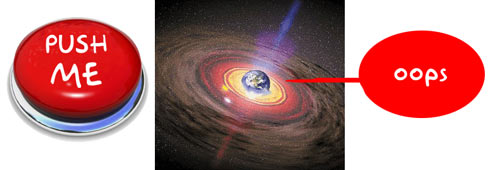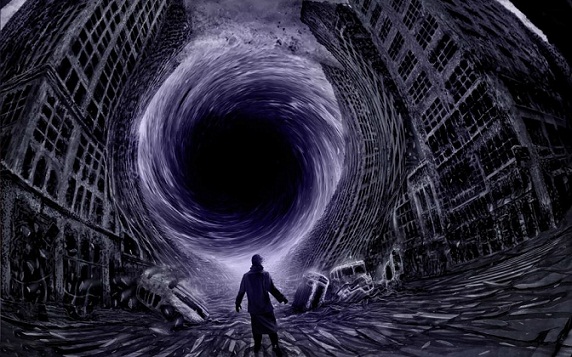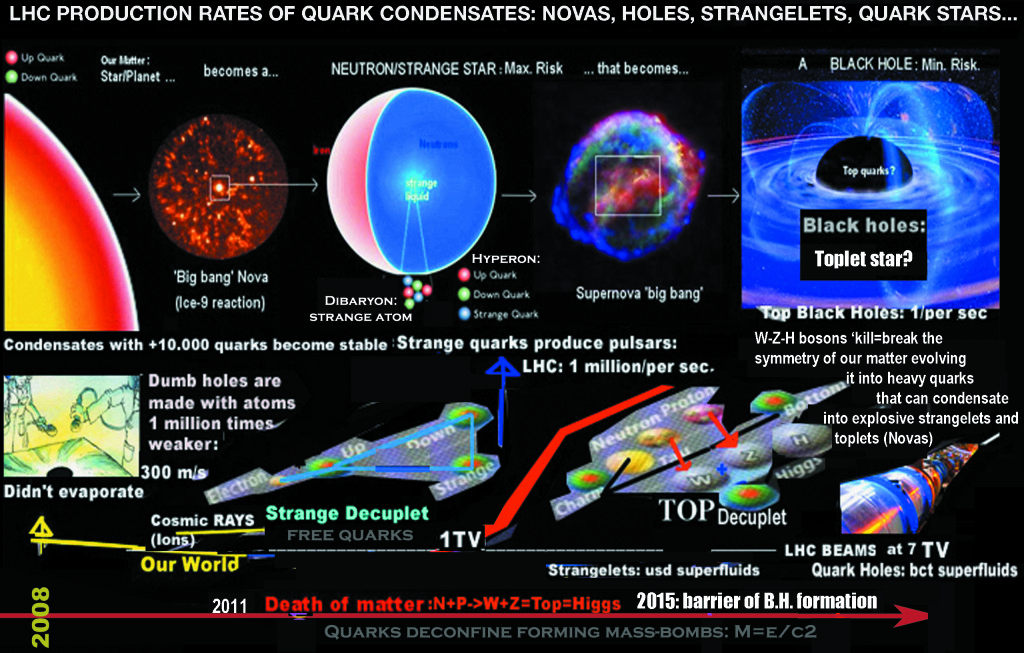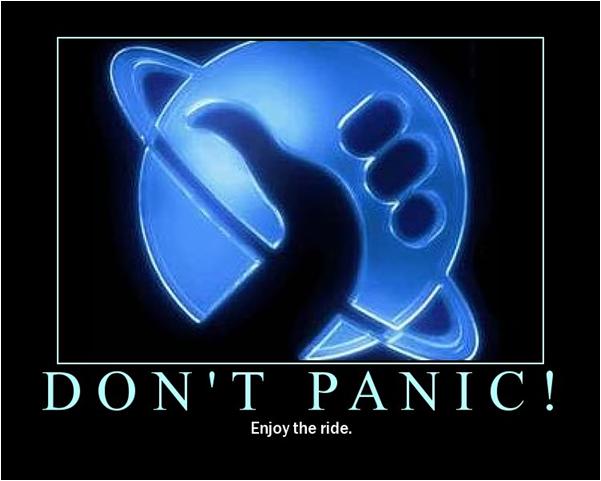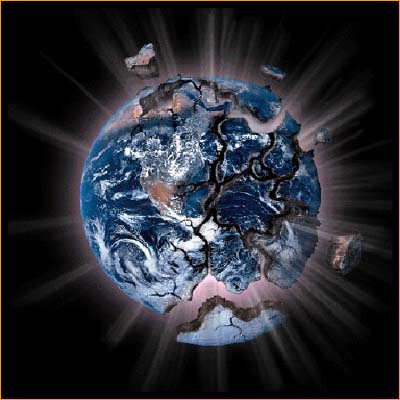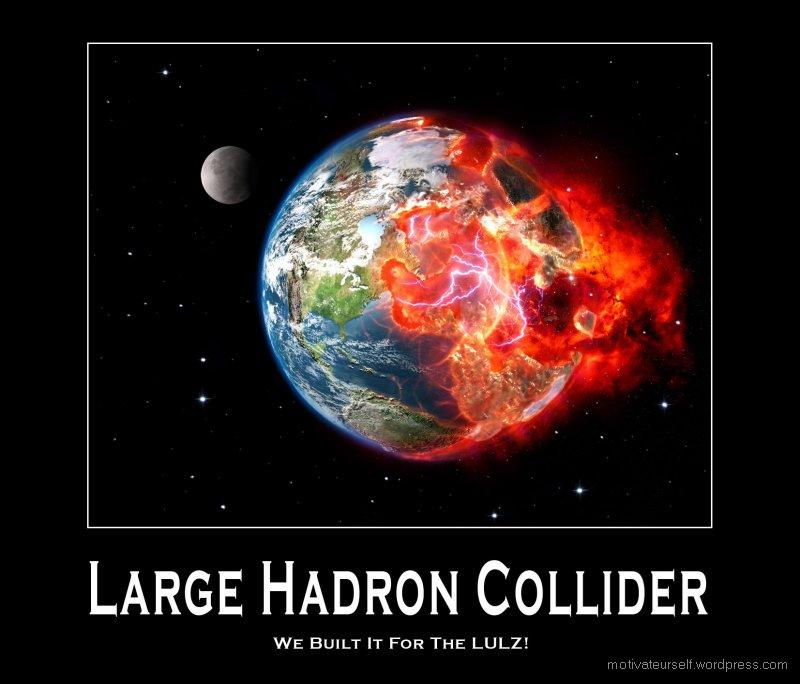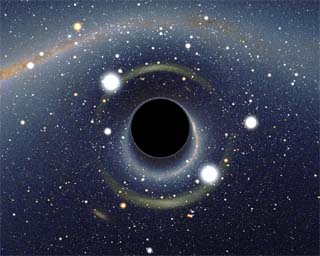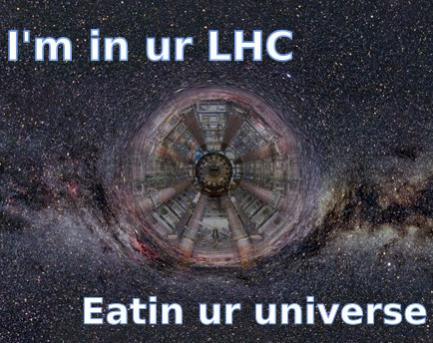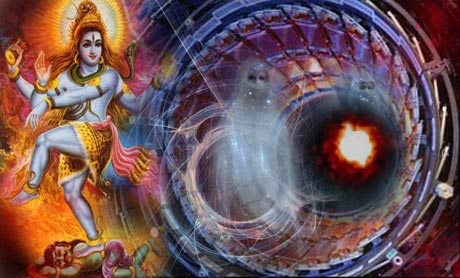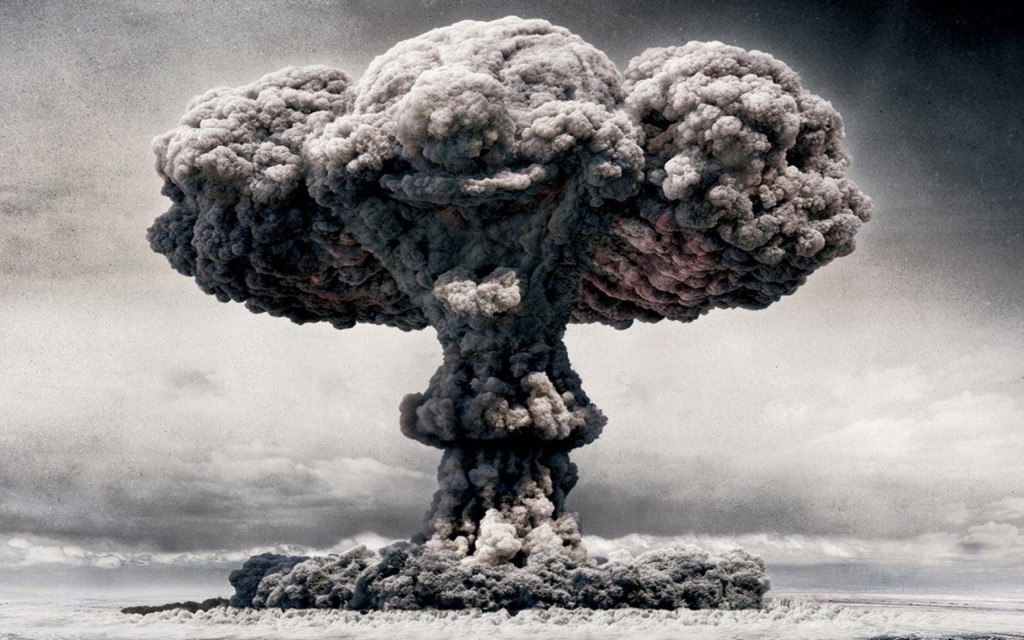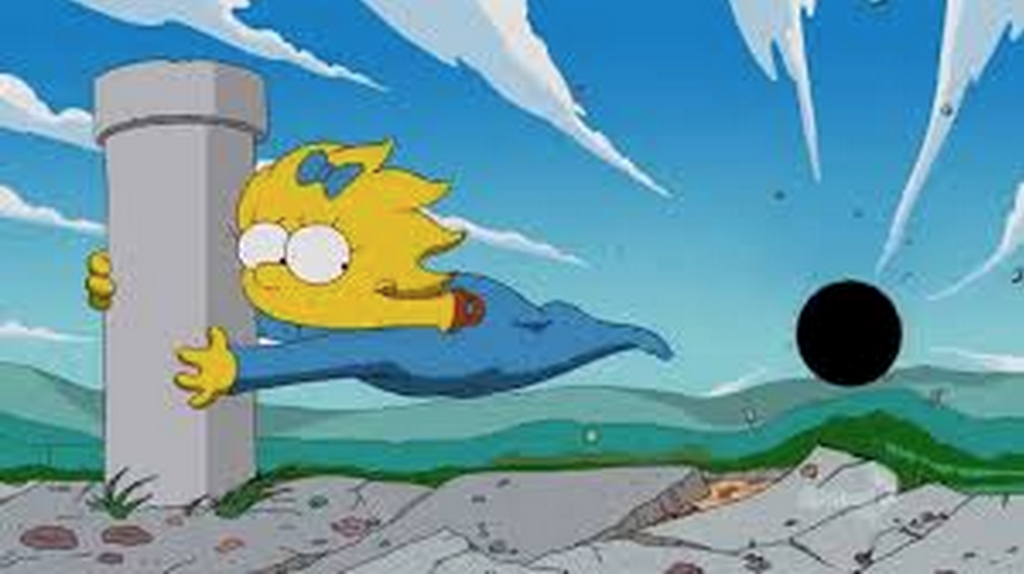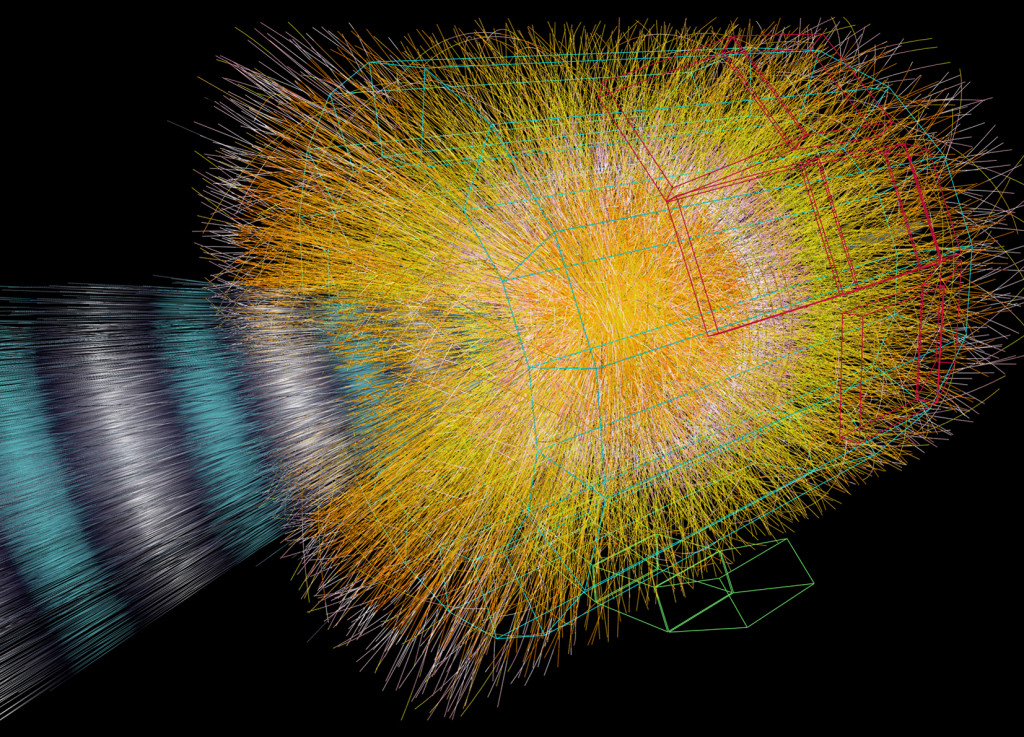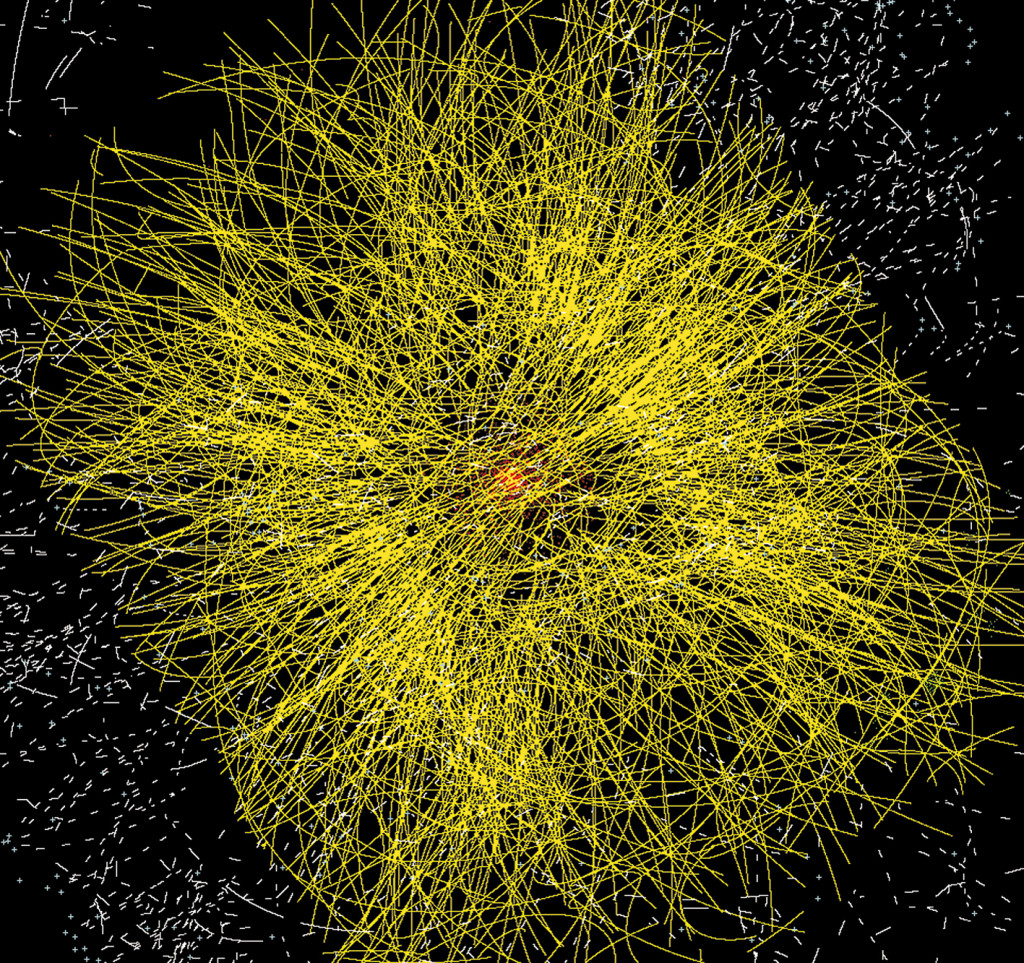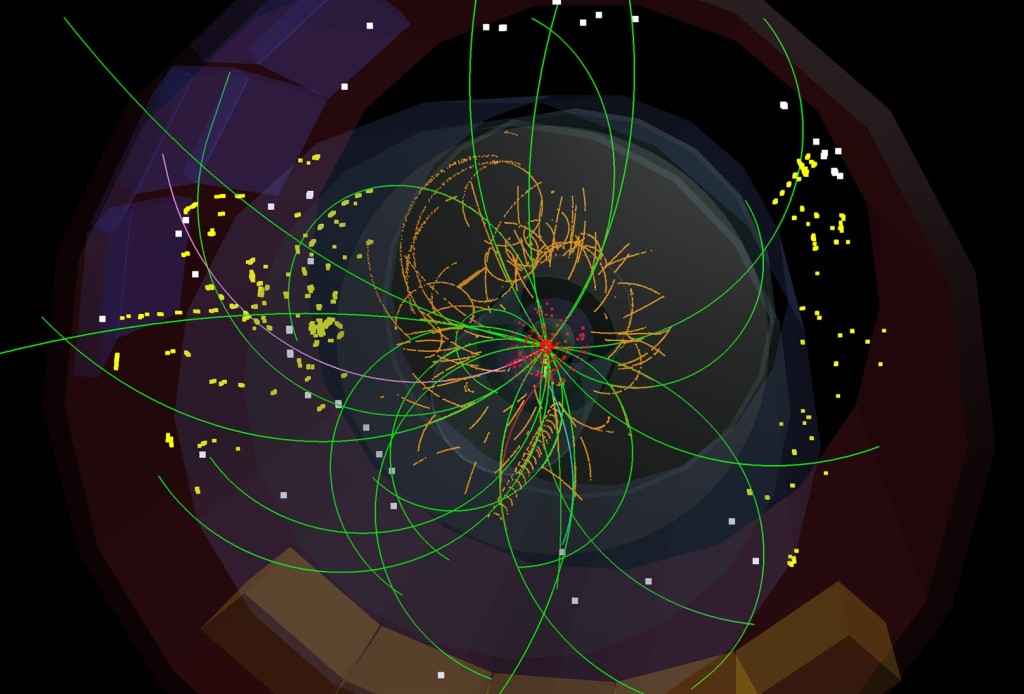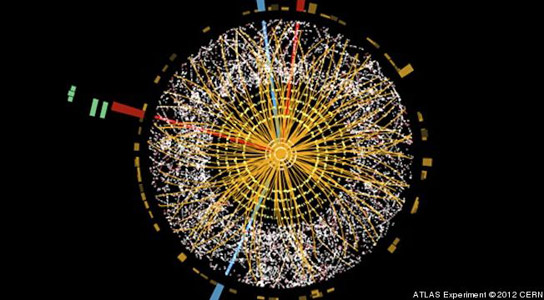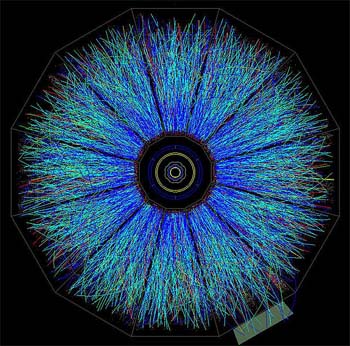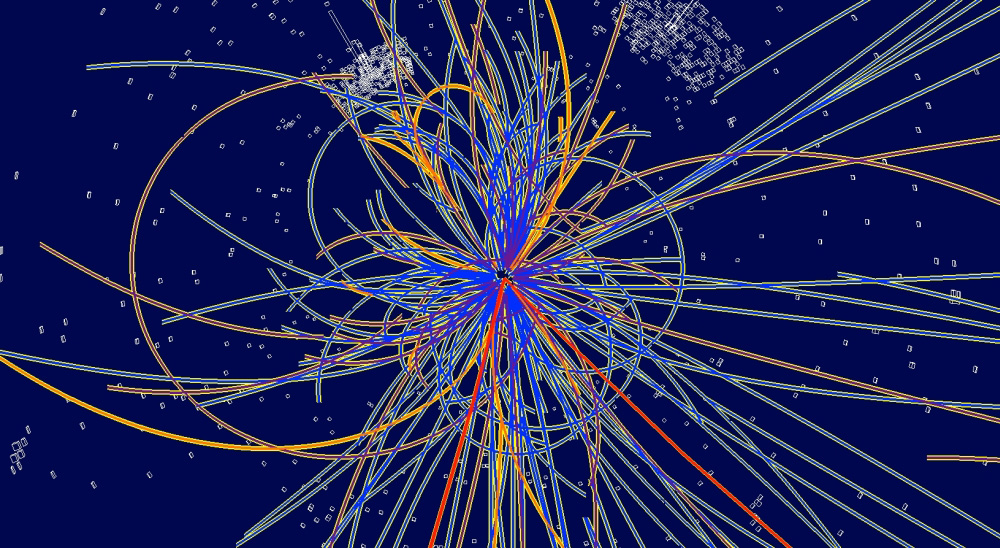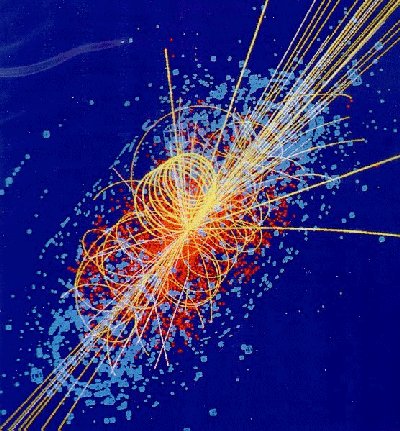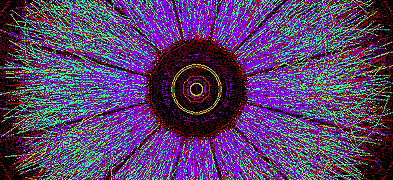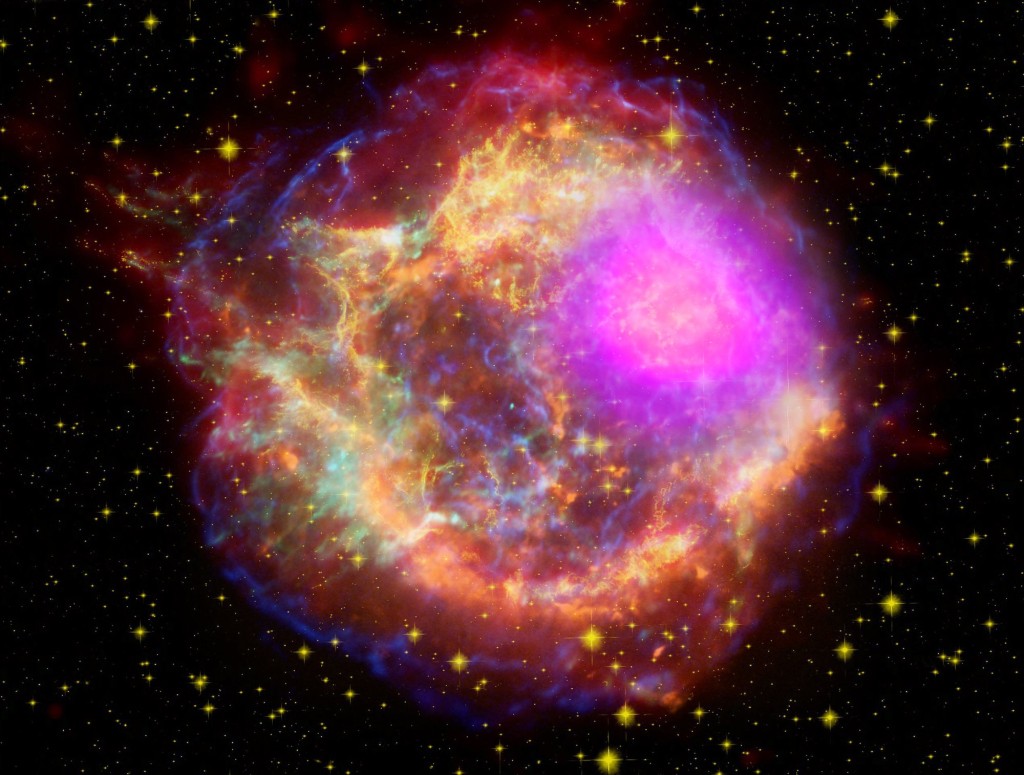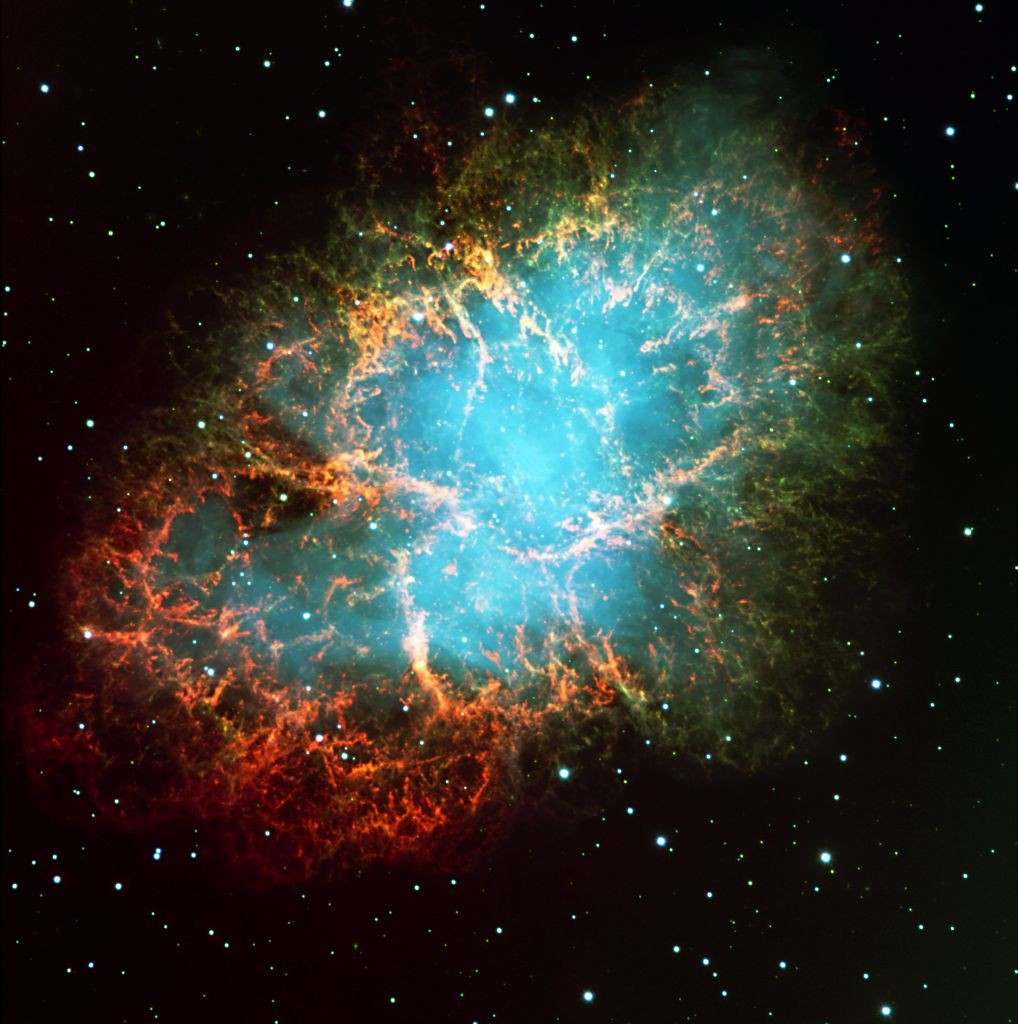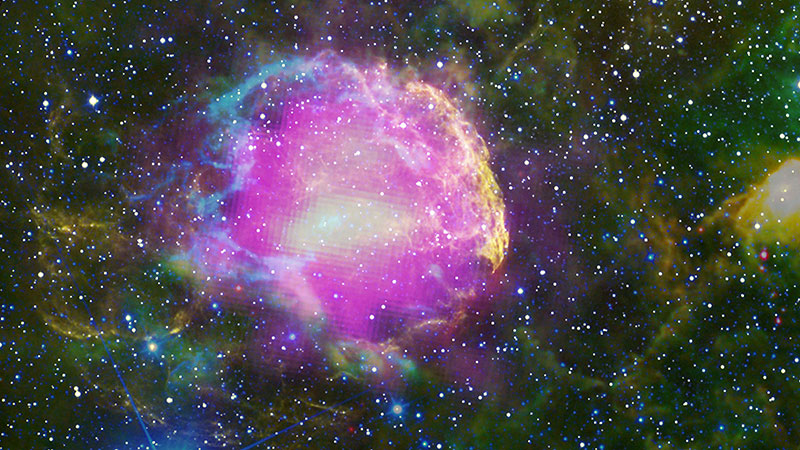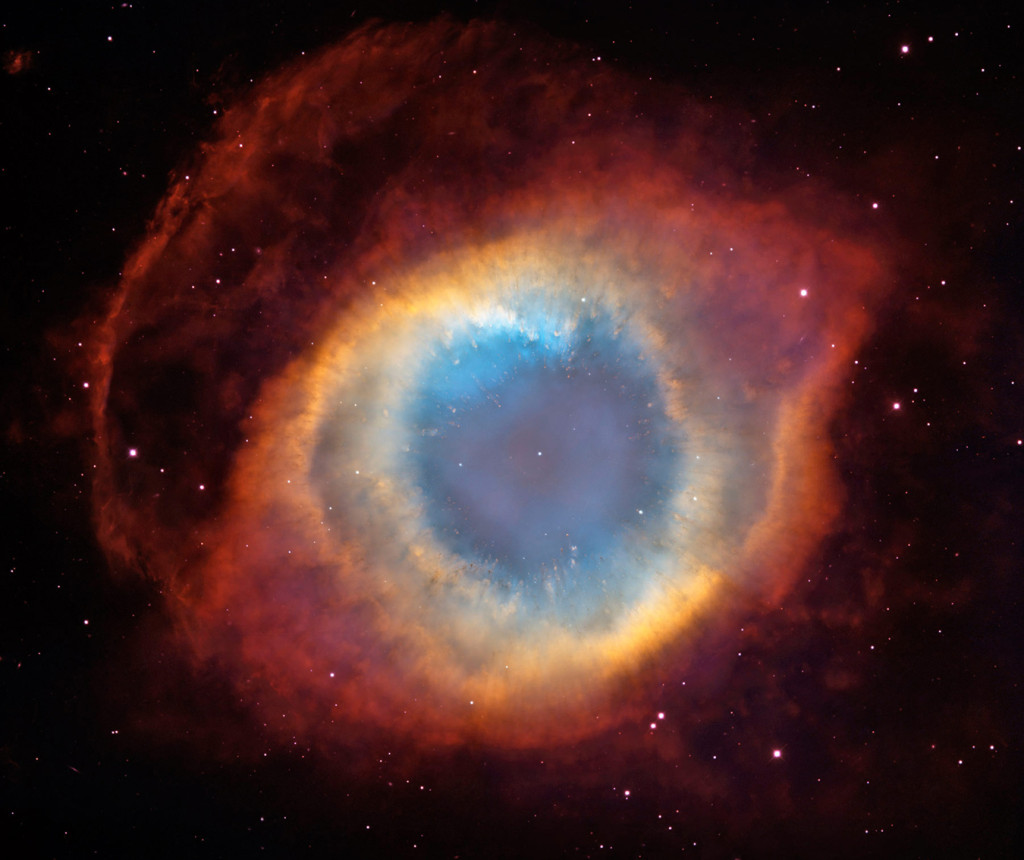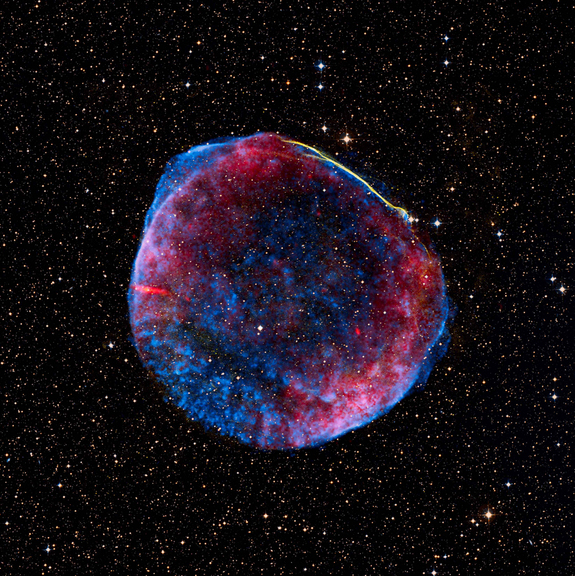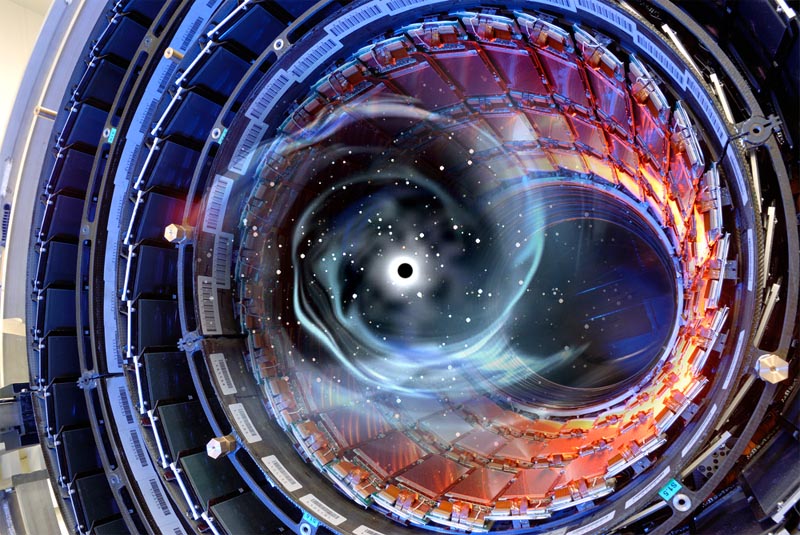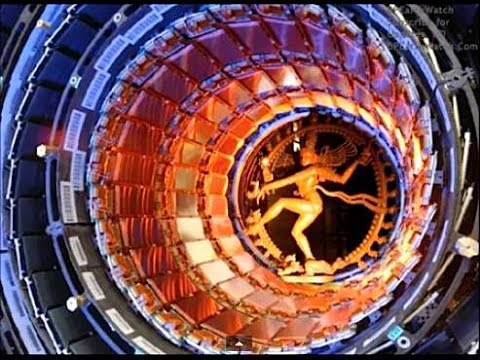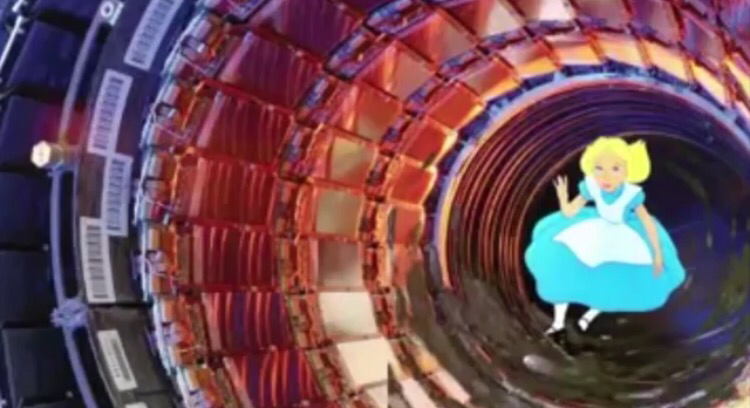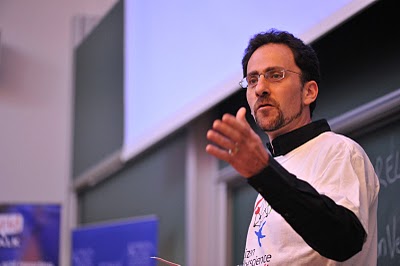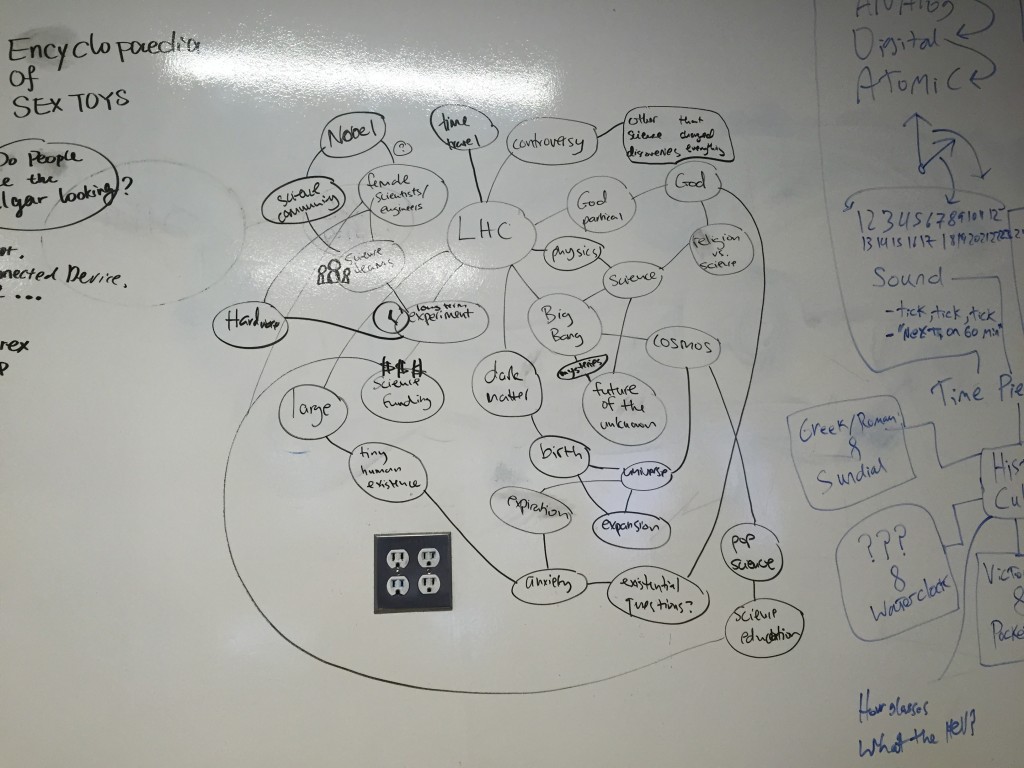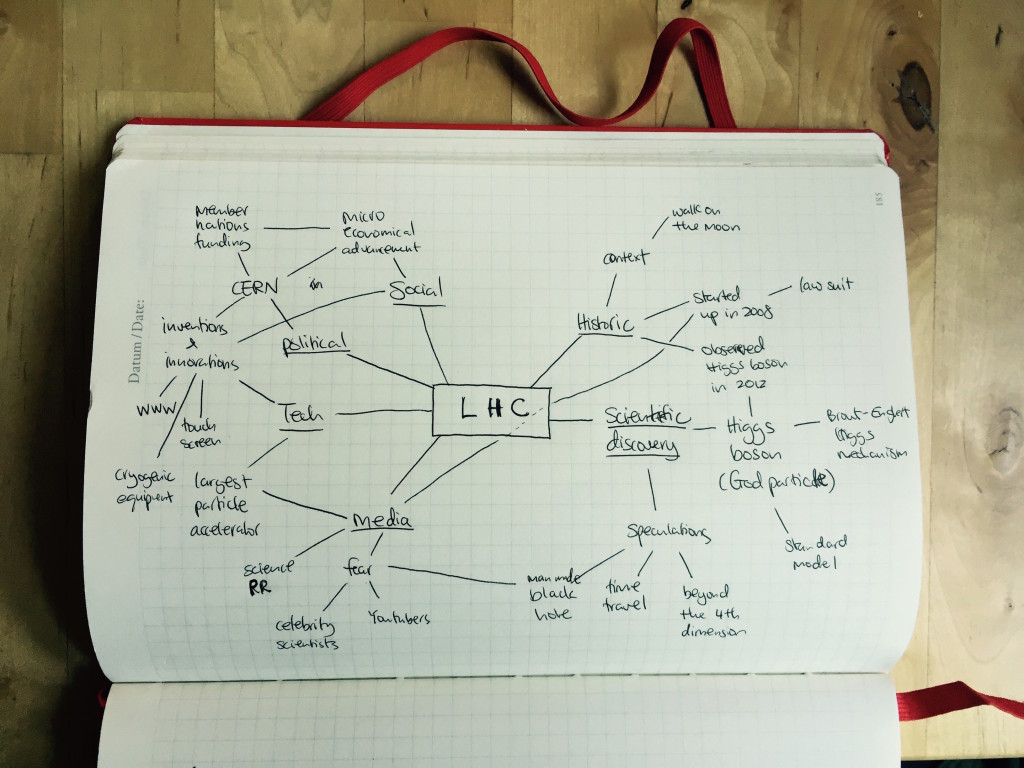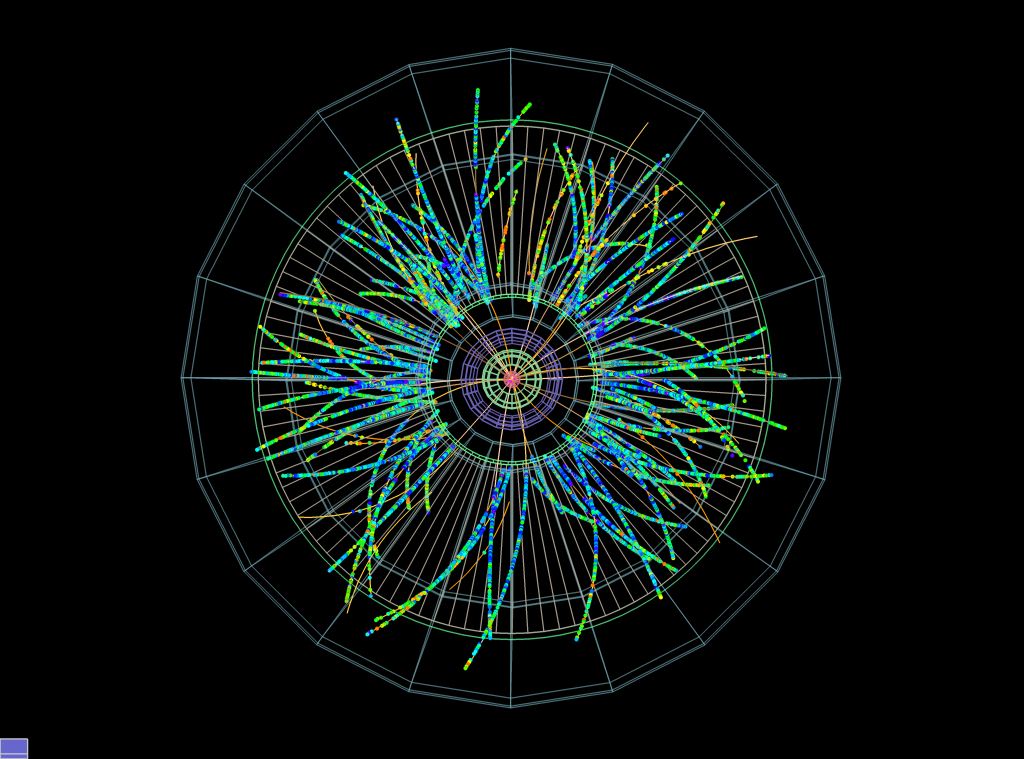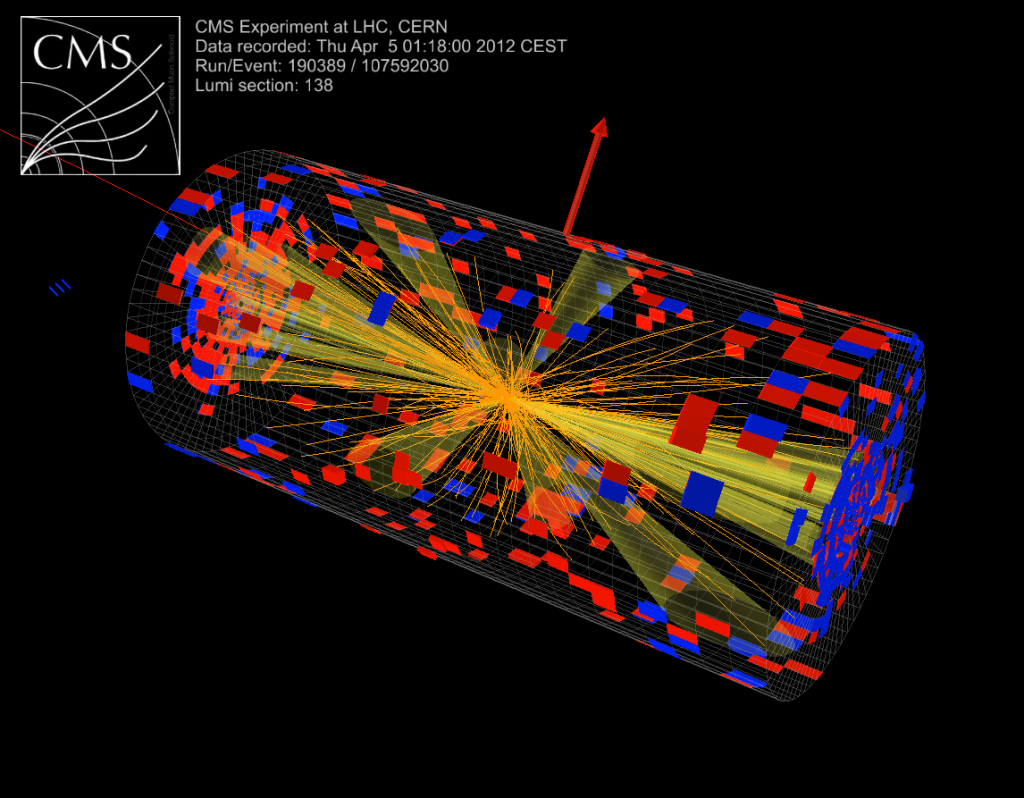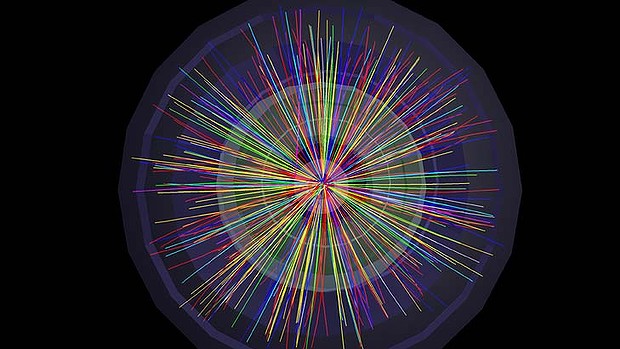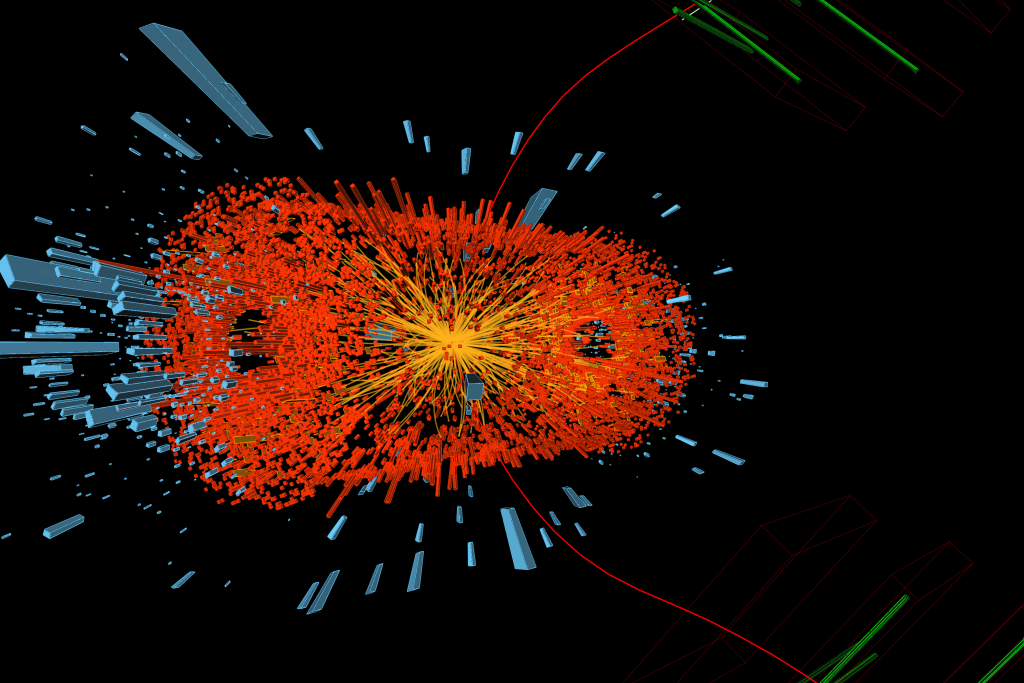All notes on Hackpad.
Month / September 2015
LHC: analogies and imageries
As I reflected on last week’s research and my conversation with Francois, I realized that there two opposing attitudes towards the LHC experiment. On one side, as Francois mentioned, there is awe of discovery. On the other, there is terror of potential calamity. This week I tried to find some analogies and imageries for these two attitudes.
Fear and terror
If you google LHC, there are plenty of homemade visuals of doom.
Analogies
Awe and Wonder
I found more images of simulations of particles colliding. I feel that these images, though technical, portray the beauty and wonder of the experiment.
Analogies
Using Francois’s example of cosmic rays, what scientists used to compare with the energy created by the LHC collision.
The Unknown
Since LHC is an experiment, the largest and most complex that mankind has ever built, nobody can confidently predict the outcome. That excites some, such as the scientists, and terrifies others. This dynamic fascinates me and I plan to continue exploring in this direction. An idea is to create a VR experience of inside the LHC.
References
https://www.quora.com/search?q=LHC
To dos
- Read H.P. Lovercraft and Greek Myth of going into hell
- Research related VR experiences
- Sketch 3D scenerios and environments
- Prototype in three.js
LHC Research Update
Last week in Temporary Expert, we each randomly picked out a topic from Marina’s box of wonders. My topic of research is the Large Hadron Collider.
Since then I focused on researching the topic and forming a fuller understanding of the historical, social, and technological context of the LHC. In other words, I was going through the process of going from “out” to “in”, a description that Marina used last week that I love. This included reading articles on the LHC and interviewing an expert on the topic. In the process of doing so I created a new diagram that drastically differs from the one I made last week in class.
All research notes, sketches, diagrams are available in this Hackpad.
From Wikipedia:
The Large Hadron Collider (LHC) is the world’s largest and most powerful particle collider, the largest, most complex experimental facility ever built, and the largest single machine in the world.
Interview with Francois Grey
The highlight of my week of research was interviewing Francois Grey (his blog). Francois helped to establish the Citizen Cyberscience Center, which is a partnership between CERN, the United Nations Institute for Training and Research, and the University of Geneva. He has worked in CERN for six years and is a physicist by training.
We spoke on various topics related to LHC, CERN, and the media’s role in informing/misinforming public discussions on the research. Here are some interesting thoughts that Francois shared.
On the topic of fear and speculations in the public
There is a difference in the way of communication between physicists and regular people. For physicists, they want to consider and look at all possibilities, even when there is very little chance of its occurrence. But for the public, these small possibilities has huge consequences, and they want the assurance of 0% of this happening.
A great example of this was when the mini black hole topics was raised in the media, CERN’s PR had wanted the scientists to tell the public that there will be 0% of producing a black hole, but to the physicists this is not scientifically accurate.
The end solution was a compromise, where the scientists compared the collision to everyday natural phenomenon – cosmic rays from the sun colliding with Earth with huge energy (more energy than the LHC collision) – instead of directly giving a percentage of the likelihood of catastrophe.
On LHC’s social impact
For all the excitement in media of the possibilities of the research, there is no direct impact of the LHC, at least no in our life time. The Higgs boson can only exist for a few seconds at a time.
But there are many indirect impact of the research, like any other scientific research experiment of this magnitudes, which affects economies and innovation in the member nations. Inventions in CERN that has already impacted us greatly are the World Wide Web, touch screen, and cryogenic equipment used in hospitals. When considering the economic impact of CERN, the topic starts to tie in with politics inevitably. The member nations give to CERN based on GDP, and the number of contract companies in those countries would get from CERN would be proportional to the amount of money that country has given. These contracts in turn stimulates that nations’s economy and innovation.
Interesting personal thoughts
Perhaps it’s my tendency to favor the romantic side of things, what I enjoyed the most in our conversation were the moments when Francois spoke of his personal thoughts and feelings toward the research.
An interesting point that he brought up was related to the excitement and media frenzy that was generated when the LHC first started and when the Higgs boson was observed. While most people had little understanding of what is the Higgs boson or how it works (not even all the scientists at CERN), they were excited nonetheless.
People are excited by things that they don’t understand.
And why is that?
Sure, the research is not going to impact us directly. But “Why did we go to the moon?” Francois asked. For him, he is excited by the sense of discovery and awe. Very few times in his experience as a physicist that there is discovery of this magnitude.
It feels like an expansion of knowledge
Instead of negative news about politics or world events, there is wonder and discovery – something positive to look forward to.
Diagrams
Stunning images of protons colliding
Things to do
- Try LHC@Home: http://lhcathome.web.cern.ch/
- Include youtube videos of fearmongering: https://www.youtube.com/watch?v=yZnsZPhonnI
- Collage of collisions and LHC photos
- Create timeline of LHC media exposure
Resources
Articles:
http://www.rt.com/op-edge/313922-cern-collider-hadron-higgs/
http://phys.org/news/2015-08-large-hadron-collider-higher-intensities.html
http://www.wired.com/2015/08/hadron-collider-smashing-old-ideas/
